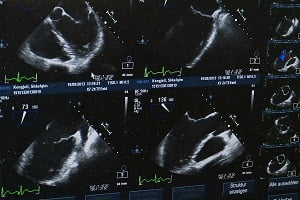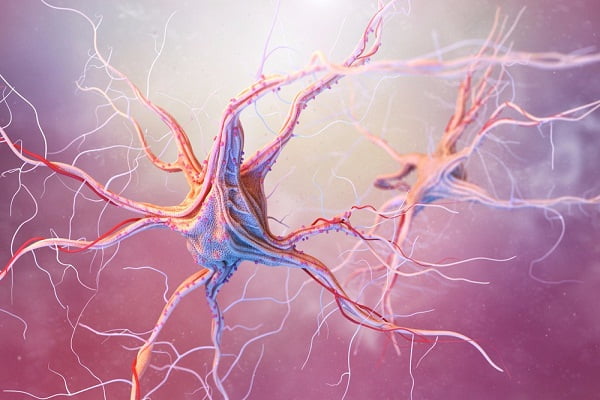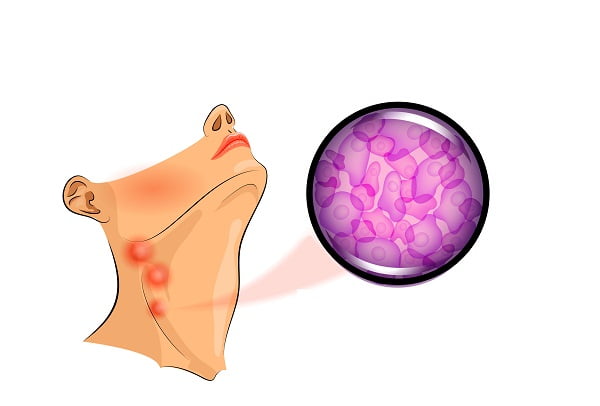Browsing: Cancers
 The page provides quick access to a list of common diseases, syndromes, health conditions, and other topics of health importance related to cancer. The list is organized alphabetically. Links are provided to respective diseases sections that serve as a comprehensive and ultimate guide about the disease or health condition.
The page provides quick access to a list of common diseases, syndromes, health conditions, and other topics of health importance related to cancer. The list is organized alphabetically. Links are provided to respective diseases sections that serve as a comprehensive and ultimate guide about the disease or health condition.
For normal growth and development of our body, cells continue to grow and divide to form new similar type of cells. If any cell starts dividing abnormally, it develops into a tumor which leads to cancer formation. Cancer can occur in any part of the body such as affecting the blood cells, bone, nerve, adrenal gland, ovaries etc.
There are several reasons that can turn a normal body cell to develop abnormally and become cancerous. Significant factors which can lead to various types of cancers are due to exposure of chemical or toxic compounds, ionizing radiation, certain pathogens and human genetics.
Cancer is among the leading causes of death worldwide. In 2012, about 14.1 million new cases and 8.2 million cancer-related deaths have been reported around the world. In women, breast cancer is most prevalent, whereas in men, prostate cancer is quite frequent. Lung cancer and colorectal cancer affect both men and women with high incidence rate.
There are over 200 different types of cancer. The most common type of cancers are breast cancer, lung and bronchus cancer, prostate cancer, colorectal cancer, skin cancer, bladder cancer, non-Hodgkin lymphoma, kidney and renal pelvis cancer, endometrial cancer, leukemia, pancreatic cancer, thyroid cancer and liver cancer.
Absorbing death is not easy, but care can help in lowering the effect. Caring for a pancreatic cancer patient in his last days can not only provide him physical ease but can also help him stay calm mentally during his last moments.
Pancreatic cancer occurs due to uncontrolled division of abnormal cells present in the pancreas. Borderline resectable pancreatic cancer is an intermediate type of cancer between resectable and unresectable pancreatic cancer. These cancers are not confined within the pancreas and have extended towards the nearby blood vessels but are still believed to be surgically removable. Pancreatic cancers belonging to this category are neither clearly resectable nor unresectable.
Gallbladder cancer is the most frequent malignant neoplasm of the biliary system and the fifth of the digestive system. It…
Neuroblastoma is a solid tumor or cancer that occurs in the developing cells of the sympathetic nervous system. The cells…
Neuroblastoma is the most common malignant neoplasm that mostly occurs in neonates. Neuroblastoma is derived from the primordial neural crest…
Hepatocellular carcinoma (HCC) is a primary malignancy of the liver that usually occurs in the context of cirrhosis, hepatitis B or C virus infection, or nonalcoholic steatohepatitis. A significant number of HCC patients are asymptomatic and may be diagnosed following the screening. Patients who are at risk of HCC should be kept under surveillance with HCC liver ultrasound done at 6-month intervals. Ultrasound plays an important role in the screening, diagnosis, and treatment of HCC because it can provide real-time and non-invasive observation by a simple and easy technique that is not too costly.
Neuroblastoma (Children’s Cancer): Causes, Signs, Symptoms, Risks, Diagnosis, Prevention, Treatment, Stages
Neuroblastoma is a type of cancer that develops from immature nerve cells found in several areas of the body. These nerve cells are in their early developmental stages, found in embryo or foetuses. The word neuroblastoma consists of two terms where ‘neuro’ refers to nerves, and ‘blastoma’ refers to a cancer that affects immature cells.
Bone cancer occurs due to the formation of an abnormal mass or tumor within a bone. Tumors that cause bone cancer can be malignant and may spread to other parts of the body. Such malignant tumors are often referred to as cancerous bone tumors or simply bone cancer. Amputation means complete removal of a part of the body. Amputation in bone cancer is only done if there is no other option to clear the cancer.
Non-Hodgkin lymphomas begin due to an abnormality in a type of white blood cell (B-cell or T-cell), resulting in an uncontrolled division of these cells and therefore producing more and more abnormal cells which can spread to any other part of the body.
Diagnosing Lymphoma People worry when diagnosed with lymphoma because even if it is curable, there is a high risk that…













